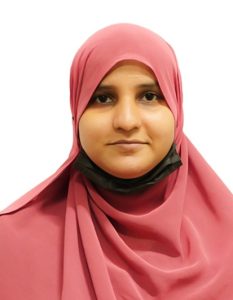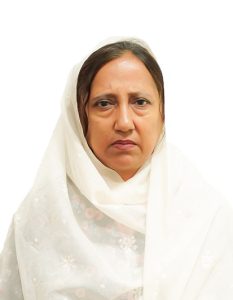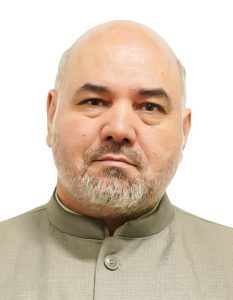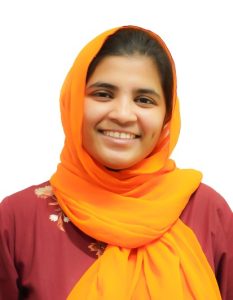The Bachelor of Science in Nursing (BSN) is a four-year professional degree program affiliated with the Pakistan Nursing Council (PNC), Islamabad, the Health Department, and the Higher Education Commission (HEC) of Pakistan. The degree is awarded through Dow University of Health Sciences (DUHS).
The BSN program integrates strong theoretical foundations, clinical competence, and professional ethics essential for safe, evidence-based nursing practice. Students develop critical thinking, communication, and patient-entered care skills, with emphasis on risk management, disease prevention, health promotion, and health restoration.
The curriculum spans nursing sciences, basic and social sciences, humanities, leadership, ethics, ICT, and community engagement. Learning takes place through classroom teaching, simulation-based practice, and clinical rotations across diverse healthcare settings.
Upon successful completion of coursework, graduates undergo a one-year paid internship, preparing them to deliver holistic, evidence-based nursing care in hospitals, communities, and public health sectors. The BSN qualification opens pathways to careers such as staff nurse, community health nurse, school/home health nurse, and further specialization or advanced studies locally and internationally.
After Completing Their Training: Where Do BSN Students Stand?
Professional Standing:
After completing the BSN program, graduates become professional registered nurses with the
ability to provide independent, evidence-based clinical care.
They can work as:
Registered Nurses (RNs)
Charge Nurses
Staff Nurses
Nurse Educators (with experience)
Nursing Supervisors (with experience)
Public Health Nurses
Settings where they can work:
Hospitals (all specialities: ICU, ER, OT, paediatrics, surgery, medicine, etc.)
Community health programs
Teaching institutions (after gaining experience or higher studies)
Research units
NGOs, public health organizations, and international agencies.
Level of Responsibility:
Independent clinical decision-making
Patient assessment, planning, implementation, and evaluation
Leadership, team coordination, and professional accountability.
BSN Course Structure (Semester-Wise)
Semester I – Total Credits: 17
| Course Title | Credit Hours |
|---|---|
| Microbiology (GE-NS) | 2 |
| Biochemistry (GE) | 2 |
| Functional English (GE) | 3 |
| Fundamentals of Nursing I (Major) | 3 |
| Anatomy & Physiology I (Major) | 3 |
| Ideology & Constitution of Pakistan (GE) | 2 |
| ICT (GE) | 2 |
| Total Credit Hours | 17 |
Semester II – Total Credits: 16
| Course Title | Credit Hours |
|---|---|
| Fundamentals of Nursing II | 4 |
| Quantitative Reasoning I (GE) | 3 |
| Anatomy & Physiology II | 3 |
| Applied Nutrition (ID) | 2 |
| Theoretical Basis of Nursing (GE-AH) | 2 |
| Islamic Studies / Ethics (GE) | 2 |
| Total Credit Hours | 16 |
Semester III – Total Credits: 17
| Course Title | Credit Hours |
|---|---|
| Professional Communication Skills | 3 |
| Clinical Pharmacology I | 2 |
| Medical-Surgical Nursing I | 7 |
| Health Assessment I | 2 |
| Pathophysiology I | 3 |
| Total Credit Hours | 17 |
Semester IV – Total Credits: 18
| Course Title | Credit Hours |
|---|---|
| Applied Psychology (ID) | 3 |
| Medical-Surgical Nursing II | 7 |
| Health Assessment II | 2 |
| Pathophysiology II | 2 |
| Clinical Pharmacology II | 2 |
| Professional Ethics for Nurses | 2 |
| Total Credit Hours | 18 |
Semester V – Total Credits: 16
| Course Title | Credit Hours |
|---|---|
| Civics & Community Engagement | 2 |
| Paediatric Health Nursing | 7 |
| Maternal, Neonatal & Child Health Nursing | 3 |
| Epidemiology | 2 |
| Infectious Diseases | 2 |
| Total Credit Hours | 16 |
Semester VI – Total Credits: 18
| Course Title | Credit Hours |
|---|---|
| Principles of Teaching & Learning | 3 |
| Public Health Nursing | 4 |
| Mental Health Nursing | 6 |
| Biostatistics (QR II) | 3 |
| Culture, Health & Society | 2 |
| Total Credit Hours | 18 |
Semester VII – Total Credits: 17
| Course Title | Credit Hours |
|---|---|
| Leadership & Management | 3 |
| Critical Care Nursing | 7 |
| Introduction to Nursing Research | 3 |
| Entrepreneurship | 2 |
| Elective (Major) | 2 |
| Total Credit Hours | 17 |
Semester VIII – Total Credits: 15
| Course Title | Credit Hours |
|---|---|
| Geriatric Nursing | 3 |
| Trends & Issues in Health Care | 2 |
| Expository Writing | 3 |
| Elective | 3 |
| Clinical Practicum | 4 |
| Total Credit Hours | 15 |
Internship
A mandatory one-year paid internship follows completion of all coursework. Internship placement is arranged by the institution.
Eligibility Criteria
| Program | Duration | Eligibility Requirements |
|---|---|---|
| Bachelor of Science in Nursing (BSN – Generic) | 4 Years |
Matriculation (Science) – Intermediate (Pre-Medical) with minimum 50% marks Age: 18–35 years Both male and female candidates eligible |
| Community Midwifery (CMW) | 2 Years |
Matriculation (Science/Arts) with minimum 50% marks Age: 18–35 years |
| Certified Nursing Assistant (CNA) | 2 Years |
Matriculation (Science) with 45% marks in Physics, Chemistry & Biology OR F.Sc. Pre-Medical with 45% marks OR Matriculation (Arts) with 50% marks + Intermediate (Arts) Age: 14–35 years Females only Must pass entry test and interview |
a) BSN Program
| Fee Type | Amount (PKR) |
|---|---|
| Admission Form / NTS Fee (One Time) | 2,500 |
| Admission Fee (One Time) | 50,000 |
| Tuition Fee (Per Semester) | 120,000 |
| Tuition Fee (Monthly) | 20,000 |
| Security Deposit (Refundable) | 10,000 |
| Student Activity Fee | 5,000 |
| Total Program Cost (Excluding Security Deposit) | 1,017,500 |
b) Community Midwifery (CMW) – 2 Years
| Fee Type | Amount (PKR) |
|---|---|
| Admission Form Fee | 500 |
| Admission Fee | 5,000 |
| Security Fee (Refundable) | 5,000 |
| Tuition Fee (Monthly) | 3,000 |
| Total Program Cost (Excluding Security Deposit) | 77,500 |
c) Certified Nursing Assistant (CNA) – 2 Years
| Fee Type | Amount (PKR) |
|---|---|
| Admission Form Fee | 500 |
| Admission Fee | 5,000 |
| Security Fee (Refundable) | 5,000 |
| Tuition Fee (Monthly) | 3,000 |
| Total Program Cost (Excl. Security Deposit) | 77,500 |
Note: PNC/NEB Registration and Examination fees are charged as per respective policies.
TOP PERFORMERS OF THE CNA PROGRAM FROM ACROSS SINDH
Position Holders List
LPN Batch I (Session 2015-2017)
| Position | Name | Father Name |
|---|---|---|
| 1st Year | ||
| 1st | Shamshad | Fida Hussain |
| 2nd | Tabassum Fatima | Ghulam Abbas |
| 3rd | Syeda Mehwish | Yonus |
| 2nd Year | ||
| 1st | Shamshad | Fida Hussain |
| 2nd | Syeda Mehwish | Yonus Khan |
| 3rd | Yasmeen | Syed Murad Ali Shah |
LPN Batch II
Session 2017-2019
| Position | Name | Father Name |
|---|---|---|
| 1st Year | ||
| 1st | Umme Farwa | Afaq Ahmed |
| 2nd | Iqra | Siddiqui |
| 3rd | Tania | Anwar |
| 2nd Year | ||
| 1st | Tania | Anwar |
| 2nd | Iqra | Siddiqui |
| 3rd | Shafia | Ghulam Hussain |
LPN Batch III
Session 2018-2020
| Position | Name | Father Name |
|---|---|---|
| 1st year | ||
| 1st | Rozeena | Muzaffar |
| 2nd year | ||
| 1st | Rozeena Ali | Muzaffar |
| 2nd | Urooj | Qamar-uz-Zaman |
LPN Batch IV
Session 2019-2021
| Position | Name | Father Name |
|---|---|---|
| 1st year | ||
| 1st | Mahnoor | Abdul Aziz |
| 2nd | Urmila | Kishan |
| 2nd year | ||
| 1st | Urmila | Kishan |
| 2nd | Mahnoor | Abdul Aziz |
LPN Batch V
Session 2020-2022
| Position | Name | Father Name |
|---|---|---|
| 1st year | ||
| 1st | Asiya | Bashir Ahmed |
| 2nd | Shazia | Bashir Ahmed |
| 2nd year | ||
| 1st | Asiya | Bashir Ahmed |
| 2nd | Shazia | Bashir Ahmed |
LPN Batch VI
Session 2021-2023
| Position | Name | Father Name |
|---|---|---|
| 2nd year | ||
| 1st | Farah Naz | Muhammad Safdar |
| 2nd | Fatima | Nawaz Hussain |
| 3rd | Paras | Hussain |
LPN Batch VIII
Session 2022-2024
| Position | Name | Father Name |
|---|---|---|
| 2nd year | ||
| 1st | Saniya Zehra | Zulfiqar Ali |
Certified Nursing Assistant (CNA) – 2 Years
Program Objectives:
a. Maternal & Newborn Care:
Provide antenatal, intrapartum, and postnatal care for normal pregnancies.
b. Safe Delivery Skills:
Conduct normal deliveries and identify danger signs for timely referral.
c. Community Health Promotion:
Educate women and families on nutrition, breastfeeding, hygiene, family planning, and
immunization.
d. Emergency Management:
Provide first-line care in obstetric and neonatal emergencies before referral.
e. Infection Prevention;
Use aseptic techniques in examinations and deliveries.
f. Ethical Midwifery Practice:
Maintain professional behavior, cultural sensitivity, and confidentiality.
g. Record Keeping:
Document maternal and neonatal data accurately for community health reporting.
After Completion of Training: Where do CMW Students Stand?
Professional Standing:
After completing the CMW program, students become skilled birth attendants who can
independently manage normal pregnancies and deliveries in community settings.
They can work as:
Community Midwives
Maternal & Child Health Workers
Birth Attendants in rural/primary healthcare settings
Settings where they can work:
Basic Health Units (BHUs)
Rural Health Centers (RHCs)
Community clinics
MCH centers
Private maternity homes
Level of Responsibility:
Independent management of normal deliveries
Health education and maternal-newborn support
Early detection and referral of complications.
Community Midwifery (CMW) – 2 Years
Program Objectives:
Program Objectives
a. Basic Patient Care;
Provide safe assistance with activities of daily living while maintaining dignity and comfort.
b. Infection Control;
Apply standard precautions, hand hygiene, and proper use of PPE.
c. Vital Signs & Reporting:
Measure vital signs and promptly report changes in patient condition.
d. Patient Safety:
Implement fall prevention, safe mobility, and emergency response measures.
e. Professional Conduct:
Demonstrate ethical behavior, respect, confidentiality, and teamwork.
f. Communication & Documentation:
Communicate effectively and maintain accurate patient records.
After Completion of Training: Where Will CNA Students Stand?
Professional Standing:
After completing the CNA program, students qualify as entry-level healthcare assistants who
provide basic patient care under the supervision of nurses.
They can work as:
Certified Nursing Assistants
Patient Care Assistants (PCA)
Nursing Orderlies / Nursing Attendants
Home Care Assistants
Settings where they can work:
Hospitals
Clinics
Rehabilitation centers
Nursing homes
Home healthcare services
Level of Responsibility:
Basic, direct patient care
Supporting nurses and the healthcare team








